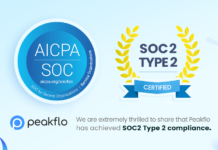In 2014, one of the UK’s largest retailers, Tesco, shocked the business world by overstating of its profits by £326 million. This accounting misstatement, the largest in British corporate history at the time, led to investigations, fines, and a significant shake-up in Tesco’s management and corporate governance practices. The Tesco scandal serves as a stark reminder of the importance of transparency, ethics, and effective governance in corporate environments.
The Scandal Unfolds
The Tesco accounting scandal came to light when the company’s board of directors were alerted about the irregularities in its financial reporting. An internal investigation revealed that Tesco had been incorrectly booking suppliers income, which led to inflated profits. This practice, known as “front-loading,” misled investors, analysts, and the market about the company’s financial health. This situation arose due to a lack of transparency and visibility into audit trails, highlighting the importance of robust internal controls and oversight mechanisms in preventing financial misconduct.
Fallout and Consequences
The consequences of the scandal were severe. Tesco’s stock price plummeted, wiping billions of its market value. The company faced investigations by the UK’s Serious Fraud Office (SFO) and the Financial Reporting Council (FRC), resulting in fines and legal battles. Tesco was forced to pay £235 million in fines and compensation to the SFO, FCA, and investors. This hefty financial penalty underscored the seriousness of the misconduct and the need for companies to uphold the highest standards of integrity in their financial reporting practices. Several top executives, including the CEO, were forced to resign, and Tesco had to restate its financial results, erasing billions from its reported profits.
Lessons Learned
The Tesco scandal serves as a cautionary tale for businesses worldwide, highlighting the importance of transparency, accountability, and ethical conduct in corporate governance. Several key lessons emerge from this debacle:
Ethical Leadership Matters: The tone set by senior leadership reverberates throughout an organization. In Tesco’s case, questions were raised about the corporate culture and the pressure placed on employees to meet financial targets at any cost. Ethical leadership fosters a culture of integrity and accountability, reducing the likelihood of misconduct.
Robust Oversight and Controls: Effective corporate governance relies on robust oversight mechanisms and internal controls to prevent fraud and financial irregularities. Tesco’s failure to detect and address the accounting discrepancies underscored weaknesses in its internal control environment.
Regulatory Scrutiny is Inevitable: In the aftermath of a scandal, regulatory scrutiny is almost certain. Tesco’s dealings were subject to intense investigation by regulatory authorities, leading to legal repercussions and hefty fines. Businesses must comply with regulatory requirements and cooperate fully with authorities to mitigate the fallout.
Enabling Audit Trails: Establishing robust audit trails ensures that financial transactions are accurately recorded and can be traced back to their source, enhancing transparency and accountability. Tesco’s experience underscores the importance of maintaining clear and comprehensive audit trails to prevent fraud and financial misconduct, rebuild stakeholder trust, and uphold the highest standards of corporate governance.
Closing Thoughts
In the years following the scandal, Tesco underwent significant transformation under new leadership, implementing reforms to strengthen its governance practices and rebuild its reputation. While the scars of the scandal may linger, Tesco’s experience serves as a stark reminder of the perils of ethical lapses in the corporate world and the imperative of upholding integrity in all business dealings.
As stakeholders demand greater accountability and transparency from corporations, the Tesco scandal stands as a sobering reminder that ethical conduct is not just a moral imperative but also a strategic imperative for long-term success and sustainability in the global marketplace. Only by learning from past mistakes and committing to the highest standards of integrity can businesses safeguard their reputation and earn the trust of investors and customers










![Why AI Sales Calls Are Making Good Sales Reps Even Better [2025 Guide] ai sales calls](https://blog.peakflo.co/wp-content/uploads/2025/09/65168cf6-3001-4733-8cbc-12d5684cf449-218x150.webp)


































